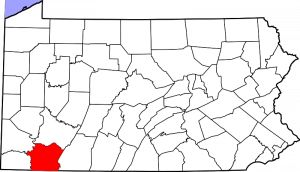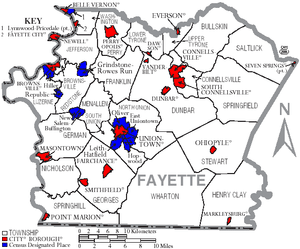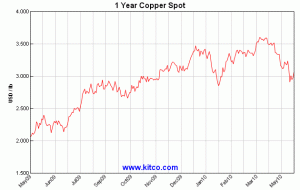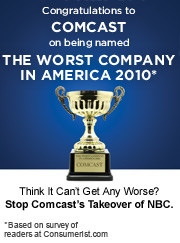 The days of AT&T’s exclusive American distribution of Apple’s iPhone are dwindling, but the mobile phone provider wants to make sure you tough it out with AT&T even after the iPhone becomes available from Verizon Wireless. If you don’t, AT&T will charge you $325 to break your two-year contract.
The days of AT&T’s exclusive American distribution of Apple’s iPhone are dwindling, but the mobile phone provider wants to make sure you tough it out with AT&T even after the iPhone becomes available from Verizon Wireless. If you don’t, AT&T will charge you $325 to break your two-year contract.
Effective June 1st, AT&T’s near-doubling of its early termination fee from $175 to $325 for smartphones is a shot across the bow of regulators already annoyed with cell company fees. But aggravating the FCC and Congress may be worth it if it means locking millions of AT&T customers into new contracts expected to be signed with the release of the next generation iPhone due next month. AT&T is making it even easier by “upgrading” many current iPhone accounts to qualify for the latest phone at the new customer price… with another two year service contract.
AT&T claims the new fee more fairly represents the cost of subsidizing increasingly popular smartphones, and the fee will decrease by $10 for every month you stay over the life of your contract. Without the subsidy, customers would pay nearly $600 for a phone AT&T reduces in price to $199 with a two year contract. But companies like AT&T earn back the subsidy and then some from the monthly service plan fees collected over the life of a two year contract. Customers who bring their own unsubsidized phones to AT&T get no benefit from doing so — they pay the same artificially higher prices subsidized phone owners pay.
AT&T also announced it was slightly reducing the cancellation fee for its basic phones by $25 to $150, decreasing by $4 every month a customer remains with AT&T. That’s not much of a concession considering many basic cell phone users are dumping contract cell phone service plans for prepaid service, where significant savings can be had.
“It is ironic indeed that news of AT&T’s early termination fee hike falls one day after the FCC’s report on the wireless industry highlighted the substantial obstacles to effective competition and the restricting effect this has had on consumer choice, service quality and price, said M. Chris Riley, Free Press policy counsel. “AT&T’s move to further price-gouge consumers is evidence of its market dominance and the need for real reform of wireless markets. The FCC needs to take action to spur competition, which will lead to lower prices and more choices for consumers who don’t wish to be bogged down in long-term contracts.”
Holding customers to two year contracts dramatically reduces subscriber churn — the practice of customers jumping from one phone carrier to another. That means stable revenue and reduced marketing expenses aimed at signing up new customers.
Verizon Wireless already doubled their early termination fee from $175 to $350 last November.
On Friday, AT&T released an “open letter” to customers which was written as if to suggest the increased fees benefited consumers:
At AT&T, we work hard every day to provide you with a great wireless experience at competitive prices.
One of the ways we do this is to offer you the industry’s leading wireless handsets below their full retail price when you sign a two-year service agreement. In the event you wish to cancel service before your two-year agreement expires, you agree to pay a prorated early termination fee (ETF) as an alternative way to complete your agreement. Of course, if you prefer not to enter into a term commitment, we offer the same great selection of devices at their full retail price with no term commitment or ETF, as well as prepaid GoPhone options.
We are now making changes that will lower the ETF for many customers who agree to new term commitments, and will increase it for others. Current AT&T wireless customers who are within their two-year consumer service agreement or have an existing enterprise service agreement will see no change to their current terms.
Beginning June 1, 2010, we will reduce the ETF in new and upgrade two-year service agreements for all customers who are buying basic and quick messaging phones. Whether you are new to us or upgrading handsets, the ETF will decrease to $150 from $175, and be reduced by $4 for each month that you remain with us as a customer during the balance of your two-year service agreement. After the term commitment is completed, the ETF will no longer apply.
For customers who enter into new two-year service agreements in connection with the purchase of our more advanced, higher end devices, including netbooks and smartphones, the ETF will increase to $325, and be reduced by $10 for each month that you remain with us as a customer during the balance of your two-year service agreement. After that, the ETF will no longer apply.
Thank you for being an AT&T customer. We hope you enjoy your AT&T wireless device and service. We appreciate your business and we will continue to work hard to earn it.


 Subscribe
Subscribe





